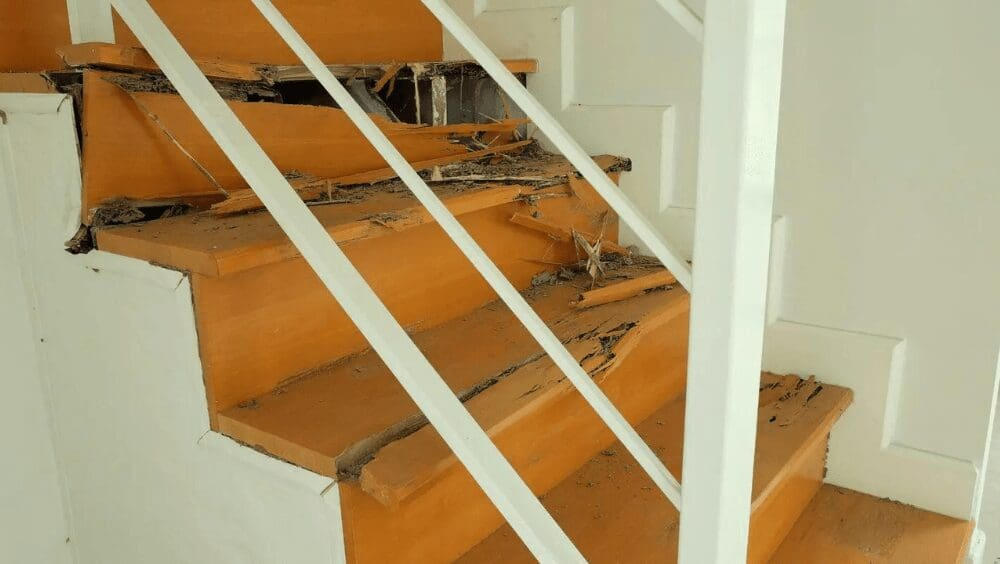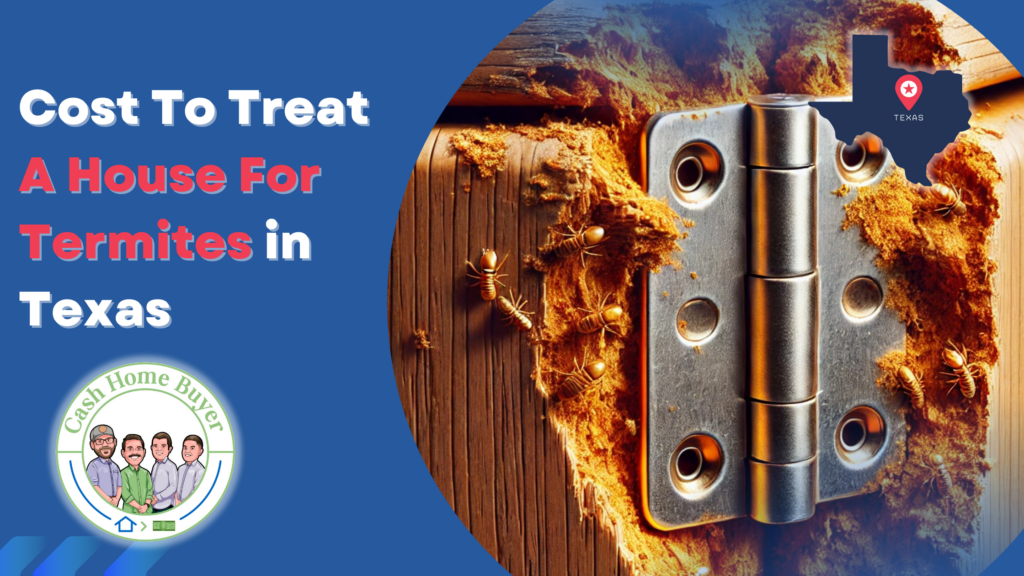
What Determines Termite Treatment Costs in Texas?
Understanding termite treatment costs in Texas is key for homeowners. Infestation severity, termite type, and treatment method impact pricing. Let’s explore what drives these expenses.
How do different regions within Texas affect the cost?
Costs for termite treatment in Texas vary by region due to local demand and accessibility of extermination services. Urban areas may have higher service fees than rural places. Additionally, termite prevalence can differ, affecting inspection and treatment pricing. Getting estimates from local exterminators familiar with your area’s challenges is wise.

Does the time of year influence termite treatment expenses?
The time of year can change termite treatment costs. Many pest control companies adjust prices seasonally. During peak termite activity in warmer months, service demand might rise, leading to higher costs. Booking inspections or treatments in less busy times may offer savings.
Are there hidden costs in termite treatments?
When considering termite treatment, it’s important to ask about hidden costs. Some quotes might exclude extra service fees for follow-up inspections or eradication measures. To avoid surprises, get a detailed breakdown of all expected expenses from the exterminator before starting treatment.
Effective Methods for Termite Prevention
Preventing termites is often cheaper than dealing with infestations. Proactive steps can protect your home and lessen the need for costly treatments.
How can regular inspections prevent costly treatments?
Regular inspections are essential for preventing termites. By scheduling checks, you can spot and fix termite issues early, stopping them from becoming expensive problems. Inspections help find infestation signs, allowing for maintenance and early action that save money over time.
What role does maintenance play in avoiding termites?
Maintenance is key to avoiding termite problems. Simple tasks like sealing cracks, fixing leaks, and cleaning gutters can deter termites. Regular upkeep not only safeguards your home’s structure but also lowers the chances of termite attraction.
Which home improvements reduce the risk of infestations?
Certain home improvements lower the risk of termite infestations. Consider making structural changes like adding ventilation to reduce moisture or using termite-resistant materials. These upgrades strengthen your home’s defenses against termites and aid long-term prevention.
If you’re worried about termites, contact A Cash Home Buyer for solutions that meet your needs and bring peace of mind.
Comparing Termite Treatment Pricing Options
Understanding the cost options for termite treatment is important when facing a termite issue. Whether you’re thinking about doing it yourself or hiring professionals, knowing the expenses helps you choose wisely.

Is DIY termite treatment a viable option?
DIY termite treatment can be tempting if you want to save money. The initial costs are usually lower compared to hiring professionals. However, it requires effort and knowledge of termite behavior. While DIY methods can help control termites, they often lack the strength and effectiveness of professional treatments. This might lead to higher expenses if the infestation gets worse.
How do professional and DIY costs differ?
The cost of professional termite treatment depends on factors like the severity of the infestation, location, and methods used. While professional services might have higher upfront fees than DIY solutions, they come with expertise and equipment that ensure thorough extermination. Getting multiple quotes helps in comparing prices and picking the best fit. On the flip side, DIY methods might start cheaper but could end up costing more if they fail to control the problem effectively.
What are the benefits of hiring a professional exterminator?
Hiring a professional exterminator has several benefits. They know how to identify termite species and provide effective control. Professionals use advanced tools and treatments unavailable to consumers, leading to better results. Their work often comes with warranties or follow-up visits to make sure all termites are gone, giving homeowners peace of mind.
Importance of Pest Control Maintenance Plans
After dealing with termites, keeping your home pest-free is key. Pest control maintenance plans offer ongoing protection to stop future infestations and prevent costly damage.
What should a comprehensive pest control plan include?
A good pest control plan typically involves regular inspections, specific treatments, and preventive measures. It aims to spot vulnerabilities early and address them before pests become a problem.
How does a maintenance plan save you money long-term?
Maintenance plans can save money by avoiding severe infestations that require expensive solutions. Regular pest control keeps your home safe, lowering the risk of costly repairs. Over time, these plans protect the property’s value and structure.
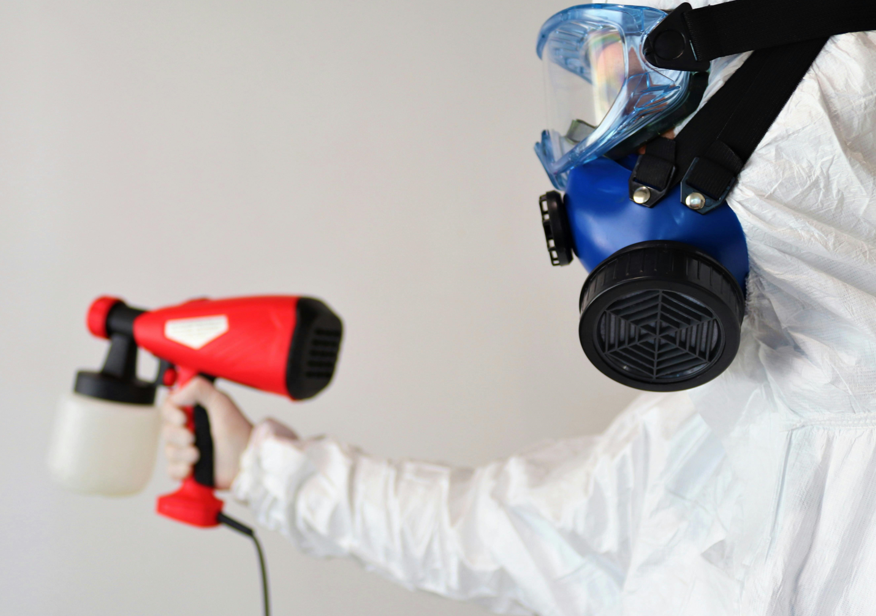
What frequency of treatment is recommended for Texas homes?
In Texas, where warm weather attracts termites, frequent pest control treatment is advised. Quarterly sessions are generally effective for preventing infestations. This schedule allows professionals to catch any issues early, keeping your home safe and healthy.
Contact A Cash Home Buyer today to learn more about protecting your property and to schedule an inspection!
How to Identify Termite Damage Early
What signs indicate the presence of termites?
Termites can cause a lot of problems if not detected early. Here are some common signs of a termite infestation:
- Mud Tubes: Subterranean termites create these small tunnels to move between their nest and your wood structures.
- Hollow Wood: If you tap on wood and it sounds hollow, termites might have eaten it from the inside.
- Frass: These are tiny, wood-like droppings left by drywood termites.
- Discarded Wings: After swarming, termites lose their wings, which you might find near windowsills or doors.
Regular inspections of your home for these signs can help you catch an infestation early and keep your house safe.
Can regular checks prevent extensive damage?
Yes, regular checks can stop a minor termite issue from becoming a big problem. Here’s how they help:
- Prevention: Detecting issues early prevents major problems.
- Savings: Early detection means lower repair costs.
- Home Maintenance: Regular inspections keep your property well-maintained.
Making termite checks a part of your routine maintenance can protect your home from serious damage.
How do termites affect home value and resale?
Termites can lower your home’s value and make it harder to sell. Here’s how:
- Damage: Fixing termite damage is expensive and can decrease your home’s value.
- Depreciation: Visible damage may scare away potential buyers.
- Appraisal: A history of termites can reduce your home’s appraised value.
Dealing with termite problems quickly keeps your investment safe and maintains your property’s value.
Understanding Different Treatments for Various Termite Species
What treatments work best for subterranean termites?
There are several ways to treat subterranean termites effectively:
- Liquid Soil Treatment: Chemicals in the soil act as a barrier that kills termites before they reach your home.
- Bait Systems: Baits attract and kill termites around your home.
- Barriers: Physical barriers stop termites from entering your home.
Each method has its own benefits, so it’s good to talk to a professional to find the best option for your situation.
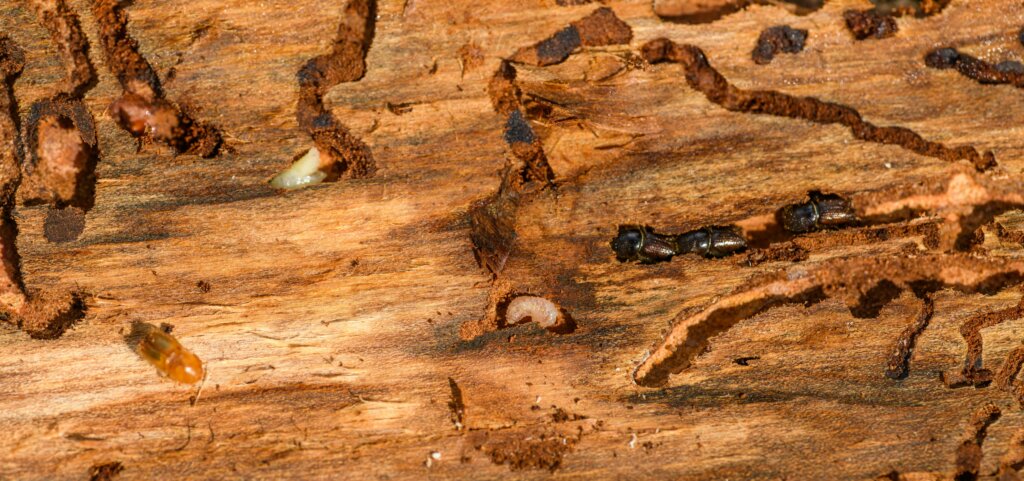
Are drywood termites treated differently?
Yes, drywood termites need specific treatments. Some methods include:
- Fumigation: This involves sealing your home and using gas to kill termites.
- Heat Treatment: High temperatures can kill drywood termites.
- Spot Treatment: Chemical treatments are applied directly to affected areas.
These methods are effective because drywood termites live inside wood rather than soil.
How does the treatment vary for Formosan versus other termites?
Formosan termites are very aggressive and need special treatment. Here’s how they differ:
- Formosan Termites: Their large colonies and aggressive nature require strong strategies, often combining bait systems and soil treatments.
- Subterranean vs. Drywood: Subterranean termites usually respond well to soil treatments, while drywood termites need direct approaches, like fumigation.
Knowing these differences helps you choose the best control methods for each type of termite. Working with experts ensures effective treatment and protects your property.
Evaluating Termite Inspection Reports
When you get a termite inspection report, it’s important to understand what it says. This report helps you deal with pest issues and keep your home safe. It usually includes findings, recommendations, and next steps.
Understanding the Findings
The inspection report starts by detailing the findings. This part shows any signs of termites in or around your house. It might mention visible damage, active infestations, or places where termites could appear in the future. You might see terms like “inspection results” and “house inspection findings.”
Recommendations and Action Steps
After the findings, you’ll see recommendations. These are steps you should take to fix problems and stop future infestations. Suggestions may include pest control actions, such as regular extermination or preventive treatments. Following these steps is key to keeping your home free of termites.
Importance of Regular Inspections
The report highlights why regular house inspections are important. Routine termite checks help spot issues early, saving you time and money. Working with a trustworthy pest control provider can help protect your home all year round.
Reach out to local experts for dependable inspections and solutions. A Cash Home Buyer can assist with all your termite needs. Schedule an inspection today to protect your investment!
How Location Affects Termite Treatment Strategies
The success of termite treatment strategies depends on where you live. Whether you’re in Texas or another place, knowing how your area affects pest control helps you make smart choices about safeguarding your home.
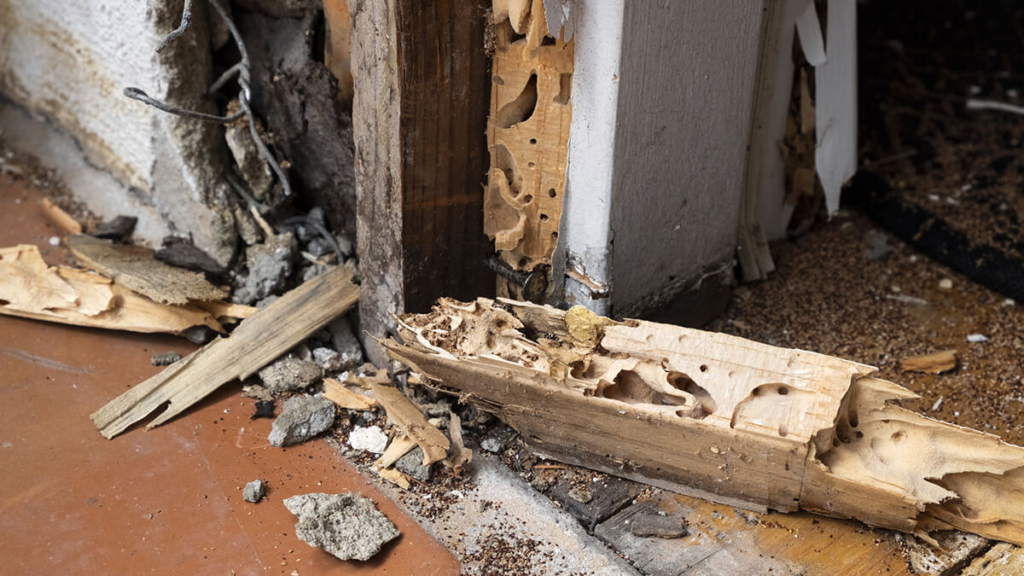
Urban vs. Rural Considerations
Termite treatment methods in cities aim to minimize disruption. In rural areas, larger properties might need more coverage. Each setting requires a specific approach to pest control.
Coastal and Inland Challenges
If you live on the coast, high humidity and moderate temperatures can encourage termites, affecting treatment needs. Inland, temperature changes may influence termite behavior. Knowing these factors helps you choose the right extermination methods.
Local Regulations and Their Impact
Local rules can affect which termite treatment options are available. In Texas, specific laws and guidelines may influence pest control practices. Be aware of regional requirements when planning your strategy.
Talk to professionals who know local regulations and practices to address your termite concerns with location-specific strategies. A Cash Home Buyer offers the expertise you need to protect your home. Contact us today to learn about termite treatment options that suit your location!
Exploring Innovations in Termite Control
In recent years, new technology has improved termite control. These advancements make it easier to protect homes from these pests. Eco-friendly solutions and smart home devices now help detect and watch for termite activity.
A major development is the addition of termite detection systems to smart home tech. These systems can quickly alert homeowners when termites are present, reducing potential damage. Besides this, eco-friendly pest control methods aim to manage termites without hurting the environment.
Preventing termites is still a key focus in pest management. Modern strategies often include ongoing checks to find termites before they cause serious problems. By using these innovations, homeowners can better protect their properties.
Building a Termite-Resistant Home
To build a termite-resistant home, construction techniques and materials are crucial. Using termite-resistant materials like treated wood can create a strong defense against termites. Installing barrier systems during construction can also improve protection.
Landscaping also helps prevent termite infestations. A well-designed yard with low soil levels near the foundation and limited mulch use can keep termites away from your property.
For those upgrading an existing home, integrating termite-resistant materials is wise. Fixing areas that gather moisture and providing proper drainage helps keep termites at bay.
By building or updating with termite-resistant features, you can enhance your home’s durability and safeguard your investment. We Buy Houses in all counties and cities in Texas, including Houston, San Antonio, Dallas, Austin, Fort Worth, El Paso, Arlington, Corpus Christi, and Plano.
Frequently Asked Questions
What is the average cost of termite treatment in Texas?
In Texas, homeowners usually pay between $300 and $500 for standard termite treatment. The cost can change based on the size of the home and the severity of the termite problem.
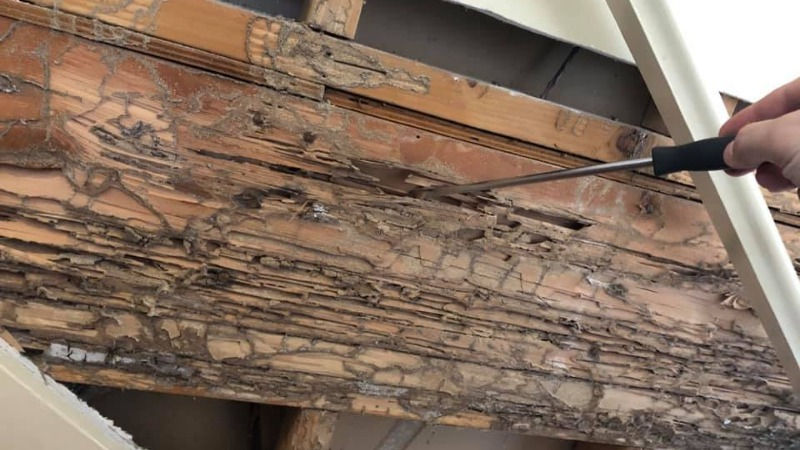
How much does termite prevention cost annually in Dallas?
In Dallas, yearly termite prevention costs range from $400 to $500. Monthly plans start at around $43, helping homeowners protect their houses without spending too much at once.
Are there specific costs for termite control in different Texas cities?
Yes, termite treatment costs vary by city in Texas. Houston, Austin, and Waco might have different costs because of local pest control rules and market prices.
How do the termite treatment options differ in terms of cost?
Different treatments, such as fumigation, chemical barriers, and bait systems, have different costs. Fumigation is usually more expensive, while localized treatments may be cheaper.
Is DIY termite treatment a viable option in Texas, and what would it cost?
DIY termite treatments can work for small infestations and are cheaper than hiring professionals. However, it’s important to be very thorough to prevent termites from returning.
What’s involved in the cost of a professional termite inspection in Texas?
Professional termite inspections in Texas generally cost about $200 to $300. Inspectors check the property for any existing termite damage and risks for future issues.
What are some cost-effective strategies for long-term termite control?
Regular inspections and preventive measures like using termite bait systems or soil treatments can save money over time by keeping termites away and preventing damage.
How can homeowners mitigate termite damage repair costs in Texas?
To avoid high repair costs, get regular inspections and treat any termite problem as soon as you notice it. Also, keep moisture levels low around your home to keep termites away.
Additional Resources for Texas Homeowners
Give Us A Call Now at (214) 617-1510
If you need to Sell your house fast in Texas, we promise to make you a fair, no-obligation, no-hassle offer. Take it or leave it. You’ve got nothing to lose.
Do you still have questions? Calling us could be the best decision you make all week! Call Us Now at (214) 617-1510

